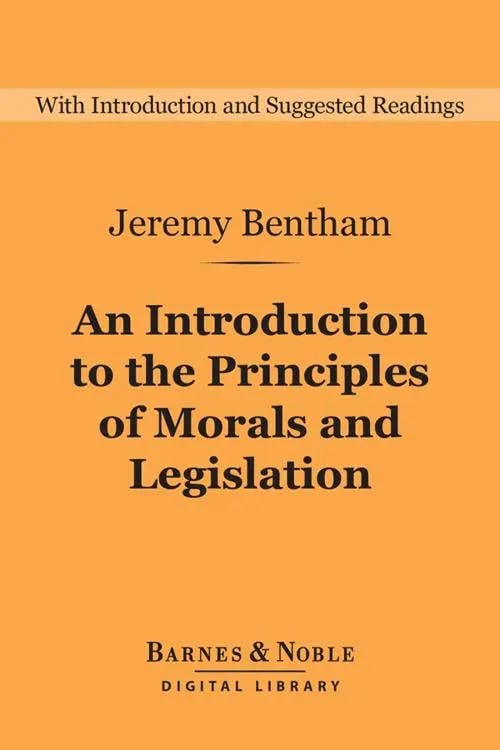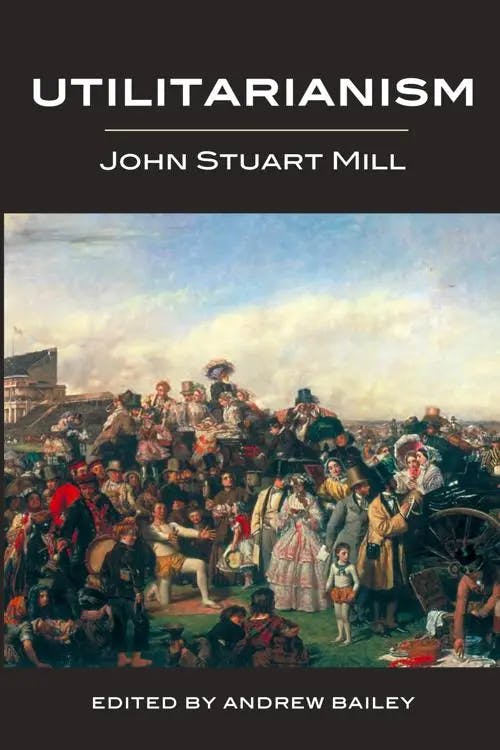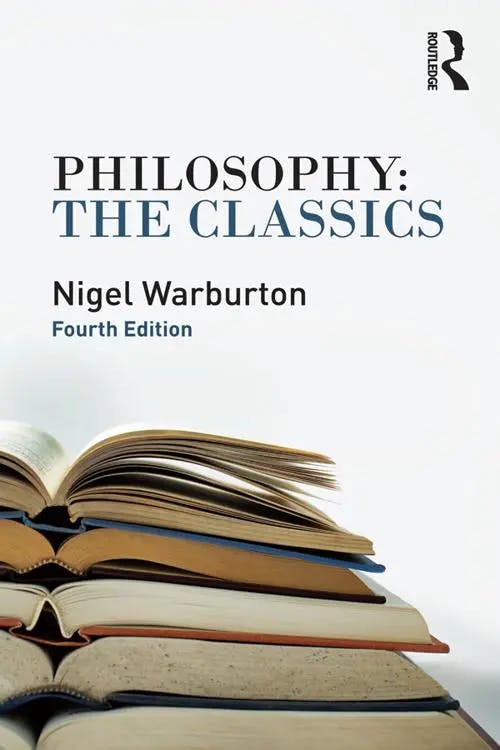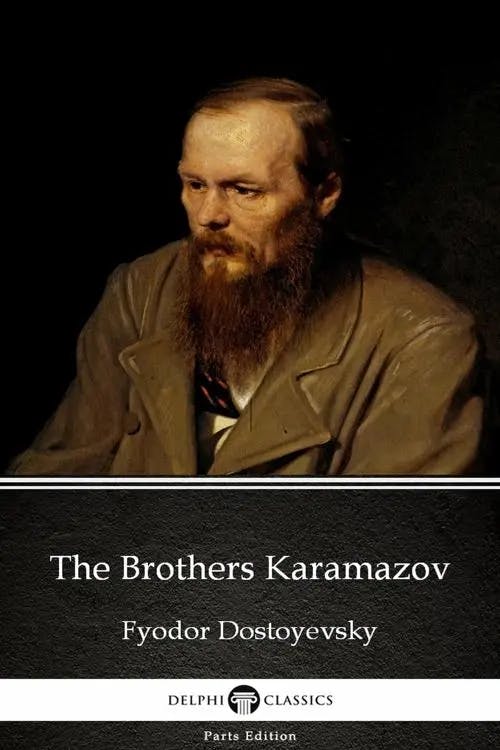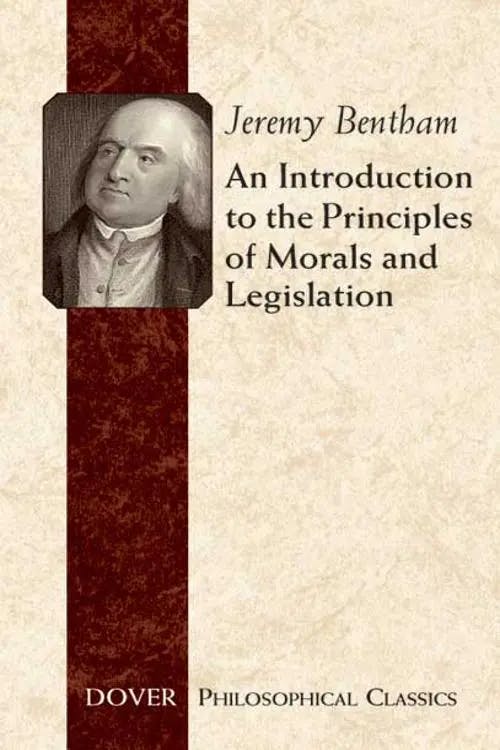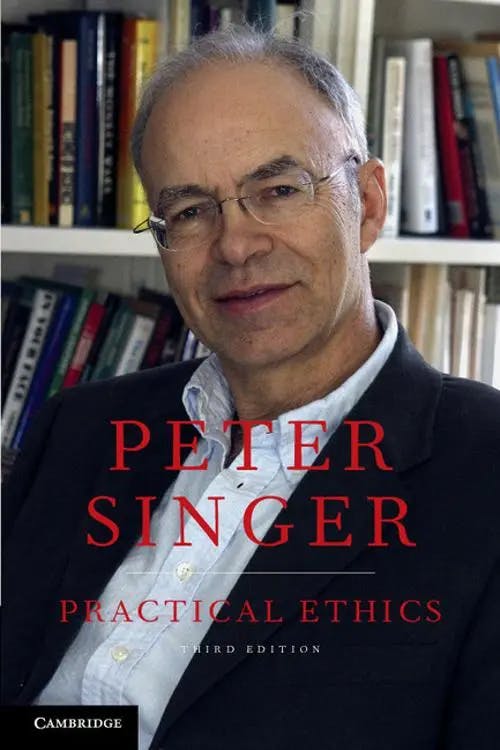What is Utilitarianism in Ethics?
MA, English Literature (University College London)
Date Published: 14.03.2023,
Last Updated: 24.01.2024
Share this article
Defining utilitarianist ethics
In a basic sense, utilitarianism can be understood as an ethical theory which seeks to maximise happiness and minimise pain. It has had a huge impact in the field of ethics and beyond, with many of its moral principles now permeating the common consciousness. You may already be familiar, for example, with the utilitarian ‘happiness principle’: that an action is moral (or not) based on how it affects the sum total of happiness experienced by the greatest number of people.
Tracing the origins of utilitarianism is a complex task, as it has a rich conceptual background. The primacy of happiness as a human goal was recognised by such early thinkers as Epicurus and Aristotle, for example. Influential contributors to the development of utilitarian thought also include Francis Hutcheson and David Hume, among others.
In the following discussion, however, we will be focusing on utilitarianism’s two most important thinkers: Jeremy Bentham, the ‘father’ of classical utilitarianism, and John Stuart Mill, who finessed Bentham’s theory to create what remains the most influential formulation of utilitarianism to this day.
Jeremy Bentham’s utilitarianism
Jeremy Bentham (1748–1832) is thought to have coined the term utilitarianism itself in 1781, and he was the first to truly flesh out the theory in detail. In An Introduction to the Principles of Morals and Legislation (1789 [2012]), he lays the groundwork for his theory of utilitarianism with this memorable opening passage,
NATURE has placed mankind under the governance of two sovereign masters, pain and pleasure. It is for them alone to point out what we ought to do, as well as to determine what we shall do. On the one hand the standard of right and wrong, on the other the chain of causes and effects, are fastened to their throne. They govern us in all we do, in all we say, in all we think.
Jeremy Bentham
NATURE has placed mankind under the governance of two sovereign masters, pain and pleasure. It is for them alone to point out what we ought to do, as well as to determine what we shall do. On the one hand the standard of right and wrong, on the other the chain of causes and effects, are fastened to their throne. They govern us in all we do, in all we say, in all we think.
For Bentham, pain and pleasure hold the key. They are the two motivating factors behind human behaviour, and the goodness of any moral action may be determined by the balance of pleasure and pain it causes. How much pleasure, and how much pain, does the action in question lead to? The consequences of an action are to be taken into account according to this equation; not just the initial impact, but all the subsequent ripples that may follow (in this way, utilitarianism subscribes to the consequentialist view of ethics).
In Bentham’s view, then, the utility (or goodness) of an action depends upon how much pleasure or pain it creates, or prevents from being created. Bentham writes,
By utility is meant that property in any object, whereby it tends to produce benefit, advantage, pleasure, good, or happiness [...] or [...] to prevent the happening of mischief, pain, evil, or unhappiness. (1789 [2012])
If we, as a moral agent, are presented with an ethical decision to make, the most moral, utilitarian action is the one which maximises pleasure and minimises pain. Bentham does not just focus on individual happiness, but on the ‘greatest happiness for the greatest number’ – as each constituent individual’s happiness must be taken into account. Bentham explains:
An action then may be said to be conformable to the principle of utility [...] when the tendency it has to augment the happiness of the community is greater than any it has to diminish it. (1789 [2012])
Each individual’s happiness is also equally weighted on Bentham’s scales of moral value – the prince is not granted preferential status over the pauper. For his time, this is a notably egalitarian stance to take. Bentham even extended this moral consideration to include (in theory) every sentient being, as the criteria employed is a being’s capacity for suffering rather than their capacity for reasoning. As Bentham writes, ‘The question is not, Can they reason? nor, Can they talk? but, Can they suffer?’ (1789 [2012]).
Bentham also makes no distinction between higher and lower pleasures (unlike John Stuart Mill, as we will explore in the next section). Bentham argues that the result of the pleasure should be our key concern, not the source. If an individual gains the same amount of pleasure from skipping stones in a pond (for example) as they do from attending the most highbrow of opera productions, then there is no reason to prefer one source of pleasure over the other.
The Felicific or Hedonic Calculus
Bentham suggests that we follow a guide, known as his felicific or hedonic calculus, to help us judge the sum total of pleasure and pain. Bentham’s calculus identifies seven criteria we should apply to the assessment of pain or pleasure:
- Its intensity.
- Its duration.
- Its certainty or uncertainty.
- Its propinquity (nearness) or remoteness.
- Its fecundity – does it create new pleasure and pain? If so, how much?
- Its purity.
- Its extent (or the number of people affected).
With each of these qualities in mind, Bentham argues, we will then be able to ‘Sum up all the values of all the pleasures on the one side, and those of all the pains on the other. The balance, if it be on the side of pleasure, will give the good tendency of the act upon the whole’. Importantly, he stresses that we should also ‘Take an account of the number of persons whose interests appear to be concerned; and repeat the above process with respect to each’ (1789 [2012]).
To summarise Bentham’s utilitarianism, then, a morally good act is that which, on balance, creates more pleasure than pain for all those who are affected by that act. We may be daunted by the difficult process of working out this sum total of pleasure and pain, painstakingly using the felicific calculus and attempting to trace each potential consequence, but Bentham maintains that this should be the moral agent’s goal.
John Stuart Mill’s utilitarianism
John Stuart Mill (1806–1873) was raised to be a utilitarian from childhood, as he was not only a student of Jeremy Bentham himself, but also homeschooled by his father James Mill (Bentham’s friend and follower).
John Stuart Mill even writes in his Autobiography (1873 [2003]) that, after contact with Bentham’s utilitarianism,
I now had opinions; a creed, a doctrine, a philosophy; in one among the best senses of the word, a religion; the inculcation and diffusion of which could be made the principal outward purpose of a life.
John Stuart Mill
I now had opinions; a creed, a doctrine, a philosophy; in one among the best senses of the word, a religion; the inculcation and diffusion of which could be made the principal outward purpose of a life.
Bentham’s foundational influence on Mill’s utilitarian thinking is clear, then, and the utilitarianism that Mill later develops does have much in common with that of his friend and teacher.
In his influential Utilitarianism (1861 [2016]), Mill agrees that ‘the utilitarian standard [...] is not the agent’s own greatest happiness, but the greatest amount of happiness altogether’. Mill’s ‘Greatest Happiness Principle’ will also seem familiar:
The creed which accepts as the foundation of morals, Utility, or the Greatest Happiness Principle, holds that actions are right in proportion as they tend to promote happiness, wrong as they tend to produce the reverse of happiness. By happiness is intended pleasure, and the absence of pain; by unhappiness, pain, and the privation of pleasure. (1861 [2016])
John Stuart Mill, Andrew Bailey
The creed which accepts as the foundation of morals, Utility, or the Greatest Happiness Principle, holds that actions are right in proportion as they tend to promote happiness, wrong as they tend to produce the reverse of happiness. By happiness is intended pleasure, and the absence of pain; by unhappiness, pain, and the privation of pleasure. (1861 [2016])
Despite these marked similarities, Mill’s utilitarianism has important points of divergence – with the most obvious of these being Mill’s distinction between ‘higher’ and ‘lower’ pleasures. Unlike Bentham, Mill does not believe that all pleasures are created equal. Instead, Mill argues that the ‘quality’ as well as ‘quantity’ of pleasure should be taken into account when assessing the utility, or goodness, of an action. Mill’s view is that ‘some kinds of pleasure are more desirable and more valuable than others’, and that this difference is self-evident:
[I]t is an unquestionable fact that those who are equally acquainted with, and equally capable of appreciating and enjoying, both, do give a most marked preference to the manner of existence which employs their higher faculties. Few human creatures would consent to be changed into any of the lower animals, for a promise of the fullest allowance of a beast’s pleasures. (1861 [2016])
One of the criticisms levelled at Bentham’s utilitarianism is that it would seem to justify a life full of nothing but these ‘beast’s pleasures’, and so Mill’s alternative formulation here seeks to close down that line of attack. Mill argues that utilitarianism should not be reduced to an animalistic hedonism, with the ‘lower’ pleasures of the body being dominant, as we would naturally choose a life full of ‘higher’ pleasures where given the choice. Mill famously writes that,
It is better to be a human being dissatisfied than a pig satisfied; better to be Socrates dissatisfied than a fool satisfied. (1861 [2016])
Mill’s hypothetical pig may have a happy life of bodily pleasures, rolling around in the muck and oblivious to higher concerns, but Mill argues that it would be better to choose the less pleasurable life of a dissatisfied human as we would be able to employ our ‘higher faculties’. Even if the sum total of our happiness would be lower in a quantitative sense, Mill argues that we should still choose a life of higher quality pleasures. As Nigel Warburton points out in Philosophy: The Classics (2014),
This leaves him with the awkward fact that some people who are capable of experiencing sublime intellectual pleasures nevertheless throw themselves into lives of debauchery and sensual gratification. His response to this sort of case is that they are led astray by the temptation of immediate sensual gratification; they know full well that the higher pleasures are more worthwhile.
Nigel Warburton
This leaves him with the awkward fact that some people who are capable of experiencing sublime intellectual pleasures nevertheless throw themselves into lives of debauchery and sensual gratification. His response to this sort of case is that they are led astray by the temptation of immediate sensual gratification; they know full well that the higher pleasures are more worthwhile.
In summary, then, Mill’s utilitarianism asks us to take into account not just the greatest sum total of happiness that an action creates, but also the kind of happiness that is involved. Rather than just measuring the quantity of happiness for each affected ‘sentient being’, in other words, we should also take into account the quality of that happiness.
Criticism of utilitarianism
Throughout its long and influential history, the classical utilitarianism of Bentham and Mill has attracted a wealth of critical engagement.
Many critics have taken issue with utilitarianism’s identification of happiness as the only intrinsic good, for example. Truth, beauty, and justice are often cited as concepts which also deserve that status. Deontologists, in the tradition of Immanuel Kant, would argue in favour of universal moral laws, which are morally right in and of themselves without reference to their consequences. Kant’s categorical imperative, introduced in his Moral Law: Groundwork of the Metaphysics of Morals (1785 [2013]), holds that you should only act if you are happy for that action to become a universal law. If you lie, for example, you should then be happy for lying to become the universal law. Utilitarianism, on the other hand, would consider the consequences of the lie as the determinant factor of its morality, rather than the lie itself. In utilitarianism, morality is not seen as an absolute law – a lie may be excused, for example, if its consequences result in a greater balance of happiness than the alternative.
A related criticism is that utilitarianism can therefore be (theoretically) used to justify actions which go against our moral intuition. Using the example of injustice, Nigel Warburton argues that ‘our intuitions are that punishing the innocent is unjust and should not be permitted whatever the beneficial consequences of this practice’ (2014). According to the logic of utilitarianism, even murder and torture are not regarded as morally wrong in their own right, but only with reference to their consequences. Hypothetically, if the sum total of happiness is best served by the torture of an innocent person, then utilitarianism would regard this as a morally good action. This argument makes a famous appearance, for example, in Fyodor Dostoyevsky’s The Brothers Karamazov (1880 [2017]):
Imagine that you are creating a fabric of human destiny with the object of making men happy in the end [...] but that it was essential and inevitable to torture to death only one tiny creature [...] and to found that edifice on its unavenged tears, would you consent to be the architect on those conditions?
Fyodor Dostoyevsky, Constance Garnett
Imagine that you are creating a fabric of human destiny with the object of making men happy in the end [...] but that it was essential and inevitable to torture to death only one tiny creature [...] and to found that edifice on its unavenged tears, would you consent to be the architect on those conditions?
Many critics are also troubled by what utilitarianism would mean for minorities. As a society’s majority has the greatest influence on where the sum total of happiness lies, then there is always the possibility that minority interests are neglected or even actively oppressed under utilitarianism (if that is where the sum total of happiness leads). The only recourse oppressed minorities would have under utilitarianism would be if their suffering, on balance, was of such a degree that it outweighed the happiness of the majority. Can such a measurement be made with any degree of mathematical precision? Would the majority not be doing the measuring, and would this not then be open to possible prejudice and abuse?
There is crossover, here, with another criticism of utilitarianism: that it rests upon the principle that people would be willing to sacrifice their self-interest in the name of the greater good. John Stuart Mill’s idealistic vision for society is one in which we are all morally educated in the utilitarian tradition, to such a degree that our empathy for others would naturally overpower our own self-interest. But is this a realistic view of human nature?
Many critics have also argued that utilitarianism is, fundamentally, impractical. As Tim Mulgan outlines in Understanding Utilitarianism (2014),
One enduring criticism of utilitarianism has always been that, as it rests upon precise calculations of utility, it is unworkable.
Tim Mulgan
One enduring criticism of utilitarianism has always been that, as it rests upon precise calculations of utility, it is unworkable.
Can pleasure and pain be measured with the fine degree of certainty needed to conclusively decide the sum total of human happiness? If it is not possible to measure the precise balance of pleasure and pain with mathematical certainty, some choices would therefore be hard to judge. It is also difficult to predict consequences with any degree of precision. Is this prediction meant to include all consequences, for all time? At what point do you draw the line? Each human action is arguably the result of countless contributing factors, after all – how are these factors to be separated out into neat, utilitarian parcels of moral judgement? Consequences expand and spiral outwards, like a web, interacting with the consequences of other actions and becoming difficult to untangle.
Others have argued, in response, for a looser interpretation of utilitarianism as a general guide, rather than as a prescriptive rulebook which requires us to make complicated and lengthy calculations for each action we take. In this looser sense, utilitarianism becomes more of a mental reminder to give equal consideration to all sentient beings affected by an action, and to think through the consequences of that action as far as possible.
The legacy and influence of utilitarianism
The classical utilitarianism of Bentham and Mill has a rich legacy, inspiring many different formulations of utilitarianism throughout the 19th and 20th centuries – including (among others) act utilitarianism and rule utilitarianism. Utilitarianism’s influence has also reached beyond philosophy and ethics, with its impact upon the legal and political world being felt right up to the present day.
As Andrew Bailey argues in his introduction to Mill’s Utilitarianism (1861 [2016]), utilitarianism was (along with Marxism) ‘arguably the most prevalent moral theory among philosophers, economists, political scientists, and other social theorists for much of the twentieth century’. Joseph Carrig, in his introduction to Bentham’s An Introduction to the Principles of Morals and Legislation (1789 [2012]), lays out the continuing legacy of Jeremy Bentham’s theories in particular,
They continue to shape beliefs about crime and punishment; they underlie the practice of majority rule [...] Given the broad extent to which contemporary thinking—moral, political, and economic—is indebted to his work, and given that many moral theorists, political philosophers, and economists still consider themselves “utilitarians,” Bentham is appropriately regarded as one of the great legal reformers as well as the father of one of the most important ethical systems in the modern era.
Jeremy Bentham
They continue to shape beliefs about crime and punishment; they underlie the practice of majority rule [...] Given the broad extent to which contemporary thinking—moral, political, and economic—is indebted to his work, and given that many moral theorists, political philosophers, and economists still consider themselves “utilitarians,” Bentham is appropriately regarded as one of the great legal reformers as well as the father of one of the most important ethical systems in the modern era.
With their utilitarian arguments for equality and women’s rights, too, both Bentham and Mill were radical for their time. Their view that equal ethical consideration should be extended to all sentient beings – including animals – arguably makes them radical to this day. The contemporary philosopher Peter Singer is particularly notable for his utilitarian arguments for animal rights – holding the view that we are speciesist if we care about human suffering but ignore the suffering of animals. In Practical Ethics(2011), Singer argues:
If a being suffers, there can be no moral justification for refusing to take that suffering into consideration. No matter what the nature of the being, the principle of equality requires that the suffering be counted equally with the like suffering – in so far as rough comparisons can be made – of any other being.
Peter Singer
If a being suffers, there can be no moral justification for refusing to take that suffering into consideration. No matter what the nature of the being, the principle of equality requires that the suffering be counted equally with the like suffering – in so far as rough comparisons can be made – of any other being.
Singer’s thoughts here form part of utilitarianism’s continuing legacy, echoing Jeremy Bentham’s wish for the day ‘when the rest of the animal creation may acquire those rights which never could have been withholden from them but by the hand of tyranny’ (1789 [2012]).
Utilitarianism FAQs
What is utilitarianism in simple terms?
What is utilitarianism in simple terms?
Who is Jeremy Bentham?
Who is Jeremy Bentham?
Who is John Stuart Mill?
Who is John Stuart Mill?
Further utilitarianism reading on Perlego
Driver, J. (2011) Consequentialism. 1st edn. Taylor and Francis. Available at: https://www.perlego.com/book/1618923/consequentialism-pdf
Mill, J. S. (2012) On Liberty. Dover Publications. Available at: https://www.perlego.com/book/1444550/on-liberty-pdf
Rosen, F. (2017) Jeremy Bentham. 1st edn. Taylor and Francis. Available at: https://www.perlego.com/book/1499209/jeremy-bentham-pdf
Scarre, G. (2020) Utilitarianism. 1st edn. Taylor and Francis. Available at: https://www.perlego.com/book/1828889/utilitarianism-pdf
Singer, P. (2013) In Defense of Animals. 1st edn. Wiley. Available at: https://www.perlego.com/book/1008107/in-defense-of-animals-the-second-wave-pdf
Bibliography
Primary texts:
Bentham, J. (2012) An Introduction to the Principles of Morals and Legislation (Barnes & Noble Digital Library). Barnes & Noble. Available at: https://www.perlego.com/book/3716192/an-introduction-to-the-principles-of-morals-and-legislation-barnes-noble-digital-library-pdf
Mill, J. S. (2016) Utilitarianism. Edited by Andrew Bailey. Broadview Press. Available at: https://www.perlego.com/book/2030606/utilitarianism-ed-bailey-pdf
Secondary texts:
Dostoyevsky, F. (2017) The Brothers Karamazov. Delphi Classics (Parts Edition). Available at: https://www.perlego.com/book/1653700/the-brothers-karamazov-by-fyodor-dostoyevsky-pdf
Kant, I. (2013) Moral Law: Groundwork of the Metaphysics of Morals. 1st edn. Taylor and Francis. Available at: https://www.perlego.com/book/1603894/moral-law-groundwork-of-the-metaphysics-of-morals-pdf
Mill, J. S. (2003) Autobiography. Perlego. Available at: https://www.perlego.com/book/1713276/autobiography-pdf
Mulgan, T. (2014) Understanding Utilitarianism. 1st edn. Taylor and Francis. Available at: https://www.perlego.com/book/1558515/understanding-utilitarianism-pdf
Singer, P. (2011) Practical Ethics. 3rd edn. Cambridge University Press. Available at: https://www.perlego.com/book/2883167/practical-ethics-pdf
MA, English Literature (University College London)
Andy Cain has an MA in English Literature from University College London, and a BA in English and Creative Writing from Royal Holloway, University of London. His particular research interests include science fiction, fantasy, and the philosophy of art. For his MA dissertation, he explored the presence of the sublime in Shakespeare’s plays.

